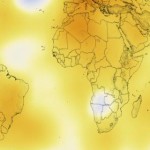On day three of the climate talks an “open consultation on the finance process” was on the agenda. A discussion of how poor countries will finance mitigation and adaptation efforts throws in sharp relief the inequalities associated with rapid climate change.
Before the dangers of climate change were known, high-income countries enjoyed the economic benefits of unrestrained fossil fuel use. While those bearing the greatest responsibility for global warming are best prepared to manage it, poor countries have felt its effects most acutely and struggled to adapt. Developing countries are already experiencing the devastating impacts of climate change, causing food insecurity, political instability, disease, and loss of livelihoods. Geographical factors mean that effects of climate change will be especially severe for much of the developing world. With limited funds and infrastructure, poor countries lack the resources to adapt to changing climate, leaving inhabitants exposed and vulnerable.
The convening of representatives from countries across the development spectrum brings to the fore questions of justice and accountability. The issue of financing prompts questions surrounding the obligation of high-income countries to support their poorer neighbors in mitigation and adaptation schemes. Similarly, pre-COP21 discussions of a ‘carbon budget’ reflect climate inequalities. Even with the dramatic reductions promised, under a carbon budget Europe, the United States, and China would use most of the allowable room for emissions.
Ongoing negotiations will continue to raise questions: how much responsibility must high-income countries bear? What are the obligations of low-income countries? Justice demands that those most responsible must help alter the course. Ultimately we are all impacted by climate change we all must share in the solution.












Navigation
Make a Donation
San Francisco, CA 94104